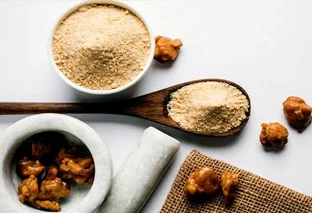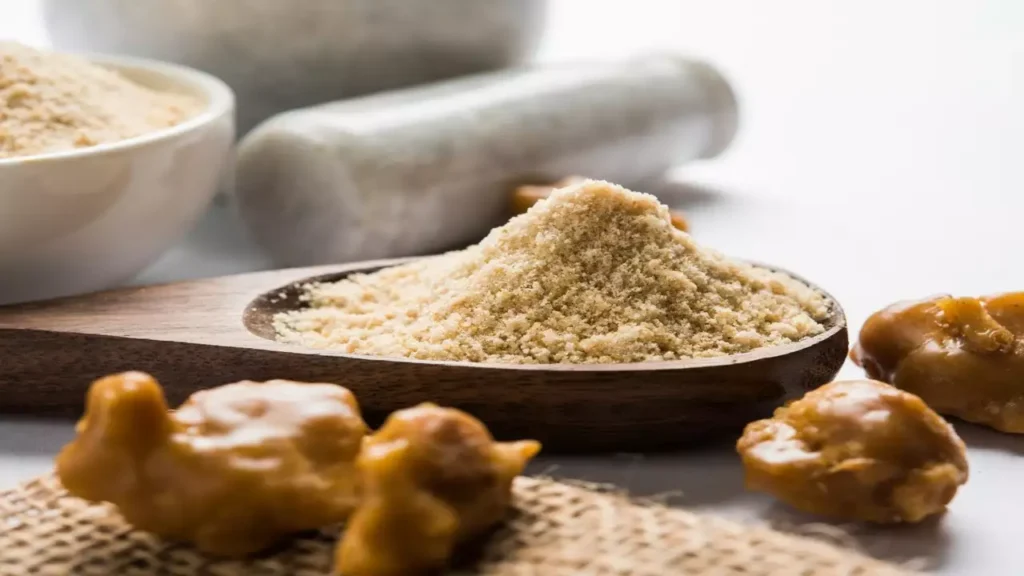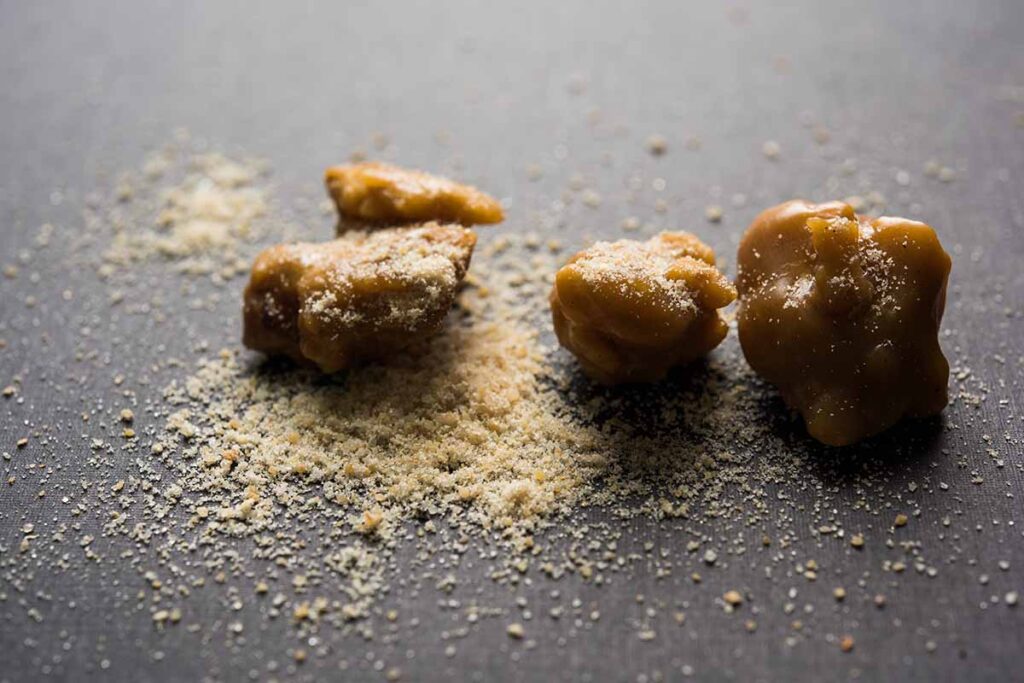Hing, also known as asafoetida, is a resinous gum obtained from the root of the Ferula plant. It is commonly used as a spice in Indian cuisine. Hing aids digestion by stimulating digestive enzymes, reducing bloating, and alleviating flatulence. Its anti-inflammatory properties further help soothe the digestive tract.
What is Hing and how does it aid in digestion?

Short Answer: Hing, also known as asafoetida, is a resin obtained from the roots of certain plants. It aids in digestion by reducing flatulence and improving gut health.
Long Answer: Hing, or asafoetida, is a staple in Indian cuisine known for its strong aroma and flavor-enhancing properties. It works as a digestive aid due to its anti-inflammatory, anti-spasmodic, and carminative properties:
- Reduces Flatulence: Hing helps in expelling gas from the stomach and intestines, thus preventing bloating and discomfort.
- Stimulates Digestive Enzymes: It promotes the production of digestive enzymes, which aid in the breakdown and assimilation of food.
- Anti-inflammatory Properties: Hing reduces inflammation in the gut, which can help alleviate various digestive issues.
Can Hing help with specific stomach issues like bloating and gas?
Short Answer: Yes, Hing is effective in relieving bloating and gas due to its carminative properties.
Long Answer: Hing has been traditionally used to address various stomach issues, particularly bloating and gas. Its carminative properties make it an excellent natural remedy for these conditions:
- Reduces Gas Formation: Hing helps in reducing the formation of gas in the intestines, preventing bloating.
- Expels Existing Gas: It facilitates the expulsion of trapped gas, thereby providing immediate relief from discomfort.
- Soothes Stomach Muscles: The anti-spasmodic properties of Hing help in relaxing the stomach muscles, which can reduce cramping and discomfort associated with gas.
How should I incorporate Hing into my daily diet for better digestion?
Short Answer: Incorporate Hing into your daily diet by adding it to soups, curries, and lentil dishes.
Long Answer: Adding Hing to your daily diet can significantly improve your digestive health. Here are some practical ways to include it in your meals:
- Soups and Stews: Add a pinch of Hing while preparing soups and stews to enhance flavor and digestion.
- Curries: Use Hing in tempering spices for curries, which not only enhances the taste but also improves digestibility.
- Lentil Dishes: Incorporate Hing in dishes like dal and sambhar. It helps in breaking down the complex carbohydrates in lentils, making them easier to digest.

Are there any side effects of consuming Hing regularly?
Short Answer: While Hing is generally safe, excessive consumption can cause nausea, diarrhea, and skin irritation.
Long Answer: Hing is safe for most people when used in moderate amounts. However, excessive consumption may lead to some side effects:
- Nausea and Vomiting: Consuming large amounts of Hing can cause nausea and vomiting due to its strong taste and aroma.
- Diarrhea: Overuse of Hing may lead to diarrhea, especially in individuals with sensitive digestive systems.
- Skin Irritation: Some people may experience skin irritation or allergic reactions when handling Hing. Always use it in small quantities to avoid these side effects.
What is the traditional use of Hing in Ayurvedic medicine for digestive health?
Short Answer: In Ayurveda, Hing is used to treat digestive disorders, relieve gas, and enhance appetite.
Long Answer: Hing has been a cornerstone in Ayurvedic medicine for centuries, particularly for its digestive benefits:
- Digestive Disorders: Hing is used to treat indigestion, constipation, and other gastrointestinal issues.
- Relieves Gas and Bloating: It is commonly prescribed to relieve gas and bloating due to its carminative properties.
- Enhances Appetite: Hing is believed to stimulate the appetite and improve overall digestive function. It is often used in appetizers and digestive tonics in Ayurveda.
Conclusion
Hing, or asafoetida, is a powerful natural remedy for various digestive issues. Its anti-inflammatory, carminative, and anti-spasmodic properties make it an excellent choice for those seeking relief from bloating, gas, and other stomach problems. By incorporating Hing into your daily diet and understanding its traditional Ayurvedic uses, you can improve your digestive health and overall well-being. However, it’s important to use Hing in moderation to avoid potential side effects. Embrace the benefits of Hing and make it a part of your culinary and health regimen.
